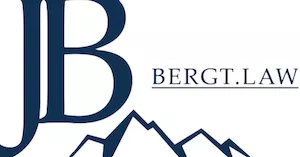From VASP to CASP from a Liechtenstein perspective
- From VASP (Virtual Asset Service Provider) to CASP (Crypto Asset Service Provider) – on October 10, 2022, the European Parliament's Committee on Economic and Monetary Affairs (ECON) endorsed the text for the MiCAR (Markets in Crypto Assets Regulation; Proposal for a Regulation of the European Parliament and of the Council on Markets in Crypto-assets, and amending Directive (EU) 2019/1937, COM/2020/593 final), which sets out a harmonized crypto regulatory framework that supports innovation and fair competition while ensuring market integrity and a high level of protection for retail users.
- This will also be relevant for Liechtenstein once implemented into the acquis communautaire of the European Economic Area (EEA) through an EEA Joint Committee Decision (JCD).
- Subject to final amendments, currently registered VASPs with the Liechtenstein Financial Market Authority (FMA) will have an 18-month transition period pursuant to Art 123 MiCAR to implement subsequent changes to the so-called Liechtenstein Blockchain or DLT1 Act (TVTG2 ) and fully comply with MiCAR regulation.
- The Rules of MiCAR are similar to the already enacted Liechtenstein Blockchain Act (TVTG). Liechtenstein based and registered VASPs therefore will in general only have to make specific adaptions and may then passport from Liechtenstein into the entire EU and EEA market!
- MiCAR will regulate the following types of tokens pursuant to
Art 3 MiCAR:
- Asset-referenced tokens;
- Electronic money tokens; and
- Utility Tokens.
- Whereas the following tokens will in general fall outside of
the scope of MiCAR:
- Unique, non-fungible tokens (e.g., NFTs for art and collectibles, etc.);
- Security tokens, which qualify as financial instruments under MiFID II (Markets in Financial Instruments Directive 2014/65/EU) as they fall under the MiFID II and associated regulatory regimes;
- Automatically generated tokens offered without a peppercorn of consideration (i.e., airdrops, etc.).
- In addition, the following crypto asset services will in
general be regulated:
- the custody and administration of crypto-assets on behalf of third parties;
- the operation of a trading platform for crypto-assets
- Exchange of crypto assets for fiat currency that is legal tender and other tokens as well as vice versa;
- the execution of orders for crypto-assets on behalf of third parties;
- placing of crypto-assets;
- the reception and transmission of orders for crypto-assets on behalf of third parties; and
- providing advice on crypto-assets.
Conclusion:
- In summary, MiCAR is a new regulation being proposed by the European Parliament that aims to create a harmonized framework for crypto regulation in the EU and EEA. This regulation will be relevant for Liechtenstein once it is implemented into the EEA through an EEA Joint Committee Decision (JCD). Currently registered VASPs (Virtual Asset Service Providers) with the Liechtenstein Financial Market Authority (FMA) will have an 18-month transition period to implement changes to the Liechtenstein Blockchain or DLT Act (TVTG) and fully comply with MiCAR regulation.
- The MiCAR regulation will cover various types of tokens such as Asset-referenced tokens, Electronic money tokens, and Utility Tokens. Certain types of tokens such as Unique, non-fungible tokens (NFTs) and Security tokens will fall outside of the scope of MiCAR. Security tokens will be treated like financial instruments.
- Additionally, MiCAR will regulate various crypto asset services such as the custody and administration of crypto-assets on behalf of third parties, the operation of trading platforms for crypto-assets, exchange of crypto assets for fiat currency, and providing advice on crypto-assets.
- Contact us at Law Firm Bergt and Partners Ltd. | Bergt Law if you have further questions regarding MiCAR, its implications and how it may affect you and your business! You may directly reach out to us under
Footnotes
1. Distributed Ledger Technology
2. Gesetz über Token und vertrauenswürdige Technologie-Dienstleister or Act on Tokens and Trusted Technology Service Providers (TTTA.)
Originally published by 03 November, 2022
The content of this article is intended to provide a general guide to the subject matter. Specialist advice should be sought about your specific circumstances.

